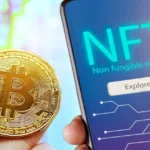Blockchain technology is disrupting an endless number of industries, but none more than the world of finance, a moribund market that for decades seemed mostly unmovable as big banks were in complete control. Then along came the decentralized ledger of blockchain, which leveled the playing field and tore down the barriers insulating the oligopoly by offering the potential to transform all types of financial transactions from remittances to capital formation. For the first time ever, blockchain technology makes it possible for global financial systems to be interconnected, secure, and accessible, as well as fast, cost effective and efficient. This has opened new market opportunities being exploited by customized blockchain payment solutions provider GreenBox POS (NASDAQ: GBOX) (Profile). Other companies are also focused on strengthening their unique positions in the burgeoning financial tech (fintech) market, including Fiserv Inc. (NASDAQ: FISV), Fidelity National Information Services Inc. (NYSE: FIS), Block Inc. Class A (NYSE: SQ) and Global Payments Inc. (NYSE: GPN).
- Mordor Intelligence forecasts the transaction value of the global digital payments to reach $11.29 trillion by 2026 and grow at an 11.21% CAGR.
- Since July 2021, GreenBox has expanded its portfolio across the world, entering deals to acquire ChargeSavvy, Transact Europe Holdings OOD and Roark Holdings.
- Preliminary results for FY 2021 showed GreenBox processed nearly $2 billion in transaction volume, a stunning 800% increase from $202 million in 2020.
- GreenBox recently began offering Automated Clearing House (ACH) processing services; clients have already committed to $50+ million in monthly processing.
Big Banks Biggest Threat
Derided by some not long ago as a misunderstood derivative of cryptocurrency, blockchain is now a mainstream technology that is upending the conventional finance world. The name blockchain is derived from individual pieces of data being recorded on immutable “blocks” that are linked together through a “chain,” or publicly accessible network. The blocks can include any type of data, including transaction details about money being exchanged, and are uniquely identified with unchangeable code.
These qualities make blockchain technology a serious threat to big banks that have been slow to adapt because a decentralized ledger allows two parties to transact without a financial services middleman, which cuts them out of the picture. In a world that is becoming increasingly digital, there is a lot at stake now and in the future. Mordor Intelligence puts a transaction value of the global digital payments market at $5.44 trillion in 2020 and forecast it to climb 11.21% annually to reach $11.29 trillion by 2026. Blockchain technologies also can provide an affordable solution to the 1.7 billion unbanked people in the world that contribute to the roughly $500 billion transferred internationally each year through personal remittances.










